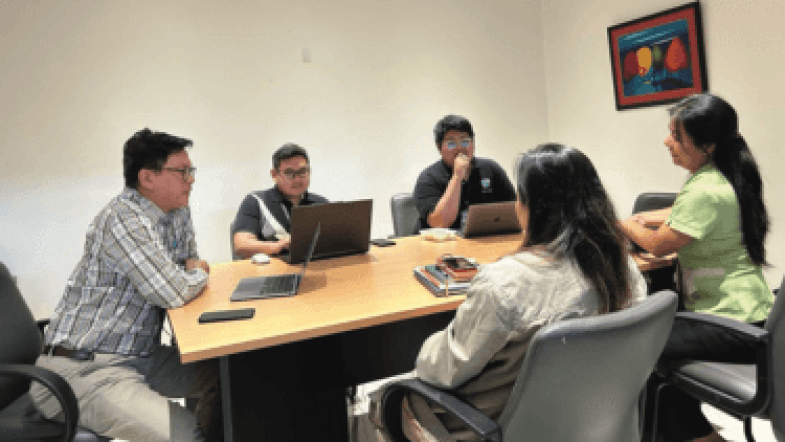
The Project CAPACITÁ under the DLSU Institute of Biomedical Engineering and Health Technologies seeks to develop skills and knowledge on the effective commercialization of inventions that can benefit more people, especially the poor and marginalized.
Since De La Salle University offered the country’s first biomedical engineering program in AY 2003-2004, it has successfully bagged four patent inventions from the Intellectual Property Office - Philippines and one International Patent from Singapore in the field of biomedical research, with a number of pending applications for projects developed under the DLSU Institute of Biomedical Engineering and Health Technologies (DLSU IBEHT).
Today, the Center continues to purse trailblazing research, with grants from the DOST-Science for Change Program (DOST- S4CP) for three major projects under the Neuro Robotics Technology (NeuRoTech) Program launched in 2022, funded by the DOST Philippine Council for Health Research and Development (DOST PCHRD) for another three major research projects in their initial stages.
For DLSU IBEHT founding director Dr. Nilo Bugtai, the Center’s achievements and continuing work, such as the development of exoskeletons for the rehabilitation of stroke and injury victims, reflect the shared commitment of the University and faculty to reach developing areas in the country, where affordable medical devices and facilities are limited.
“Our mission is to help accelerate the development of biomedical devices and health technologies by providing state-of-the-art facilities and services to research universities and institutions and enabling them to transform their ideas into market-ready products,” Bugtai says. “We also seek to develop reliable, safe, easy-to-use, accessible and affordable biomedical devices through research done by Filipinos for Filipinos towards healthier Filipinos.” It is with this commitment that DLSU IBEHT has pursued the DOST PCHRD-funded Capacity Building for Researchers, Inventors, and Technology Transfer Personnel in Commercializing Biomedical Devices and Health Technologies, better known as the Project CAPACITÁ.
Under the direction of Atty. Christopher Cruz, who concurrently heads the DLSU Intellectual Property Office (DIPO), the Project CAPACITÁ has enabled and equipped researchers, inventors, and technology transfer personnel with the necessary skills and knowledge to effectively commercialize biomedical devices and health technologies in the Philippines.
“There are many programs existing right now on commercializing technologies, but I think that there is no project yet focusing on commercializing biomedical and health technologies. This project is unique because it will dig deeper into the issues and concerns peculiar to this industry,” Cruz says.
One of the challenges in commercializing biomedical and health technologies in the country are the stringent requirements of registering a product. “Commercializing is difficult enough—what more if you were to commercialize biomedical or health technologies, which require FDA approval and other government regulatory requirements?” he points out. He notes how the layers of complexity and time- consuming process contribute to the challenge of bringing a biomedical device or health technology to the market.
According to Cruz, the Project CAPACITÁ which ran on its initial phase from 2020 to 2022 focused on providing an overview of commercialization with no special emphasis on technology. During this period, the project team was able to work with 12 universities, orienting them about the goals of CAPACITÁ. DLSU with these HEIs eventually entered into a Memorandum of Agreement as they commonly sought to engage in and promote the commercialization of biomedical devices and health technologies in the country.
Aside from these academic partners, the CAPACITÁ team also conducted an immersion program with the help of industry partners, allowing CAPACITÁ participants to gain firsthand experience and insights into the commercialization process of biomedical devices and health technologies in real-world settings. According to Cruz, leading Philippine pharmaceutical company Unilab contributed significantly to the success of the project.
“The next step after capacitating the researchers and tech transfer officers is to focus on the technology themselves. CAPACITÁ Phase 1 is more on giving a general idea about commercialization... CAPACITÁ Phase 2, if approved, will focus more on customer discovery– more on how to attract the market to invest into startups and spin offs of technology,” Cruz shares.
Contact: Atty. Christopher Cruz | christopher.cruz@dlsu.edu.ph













